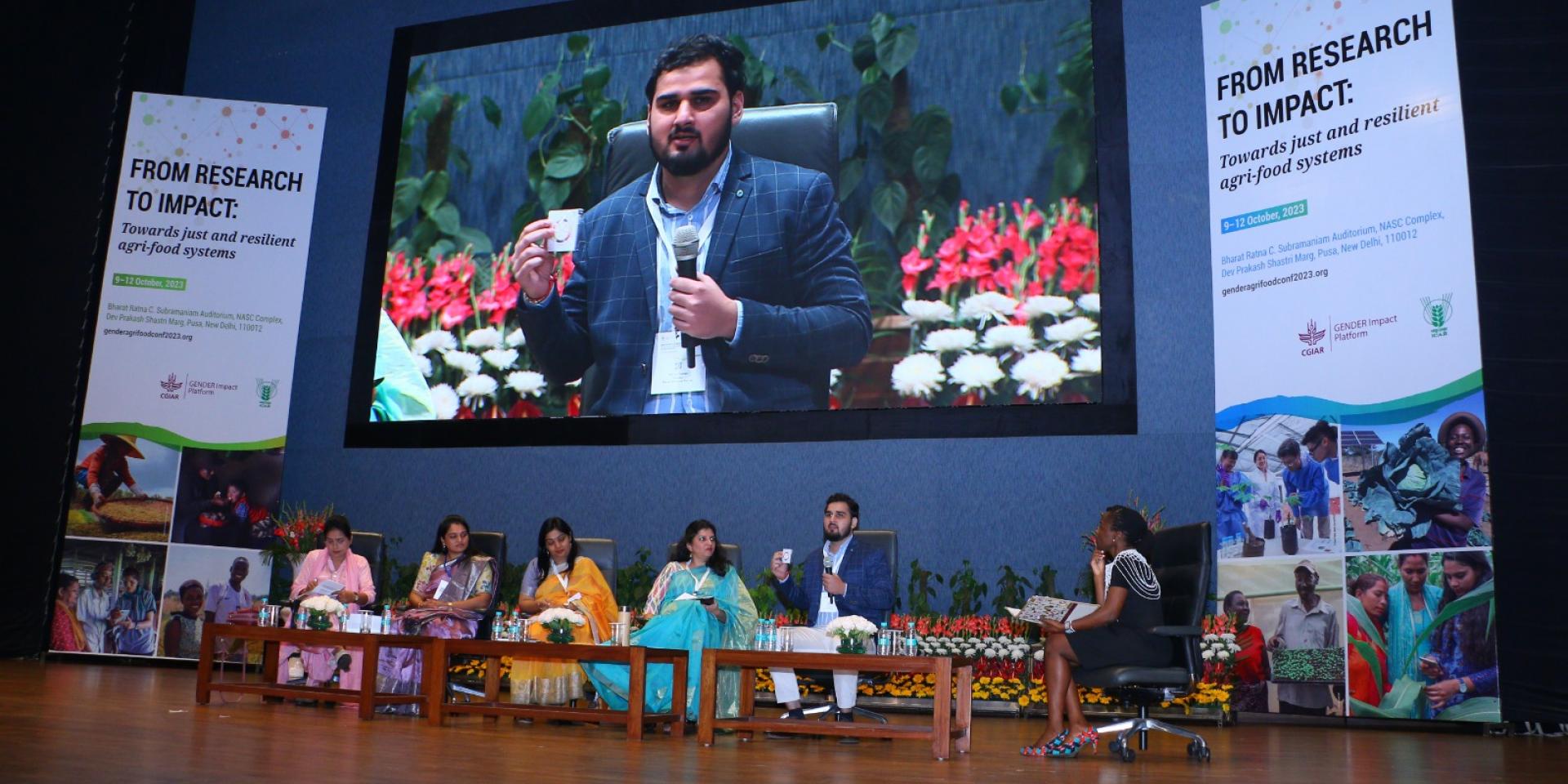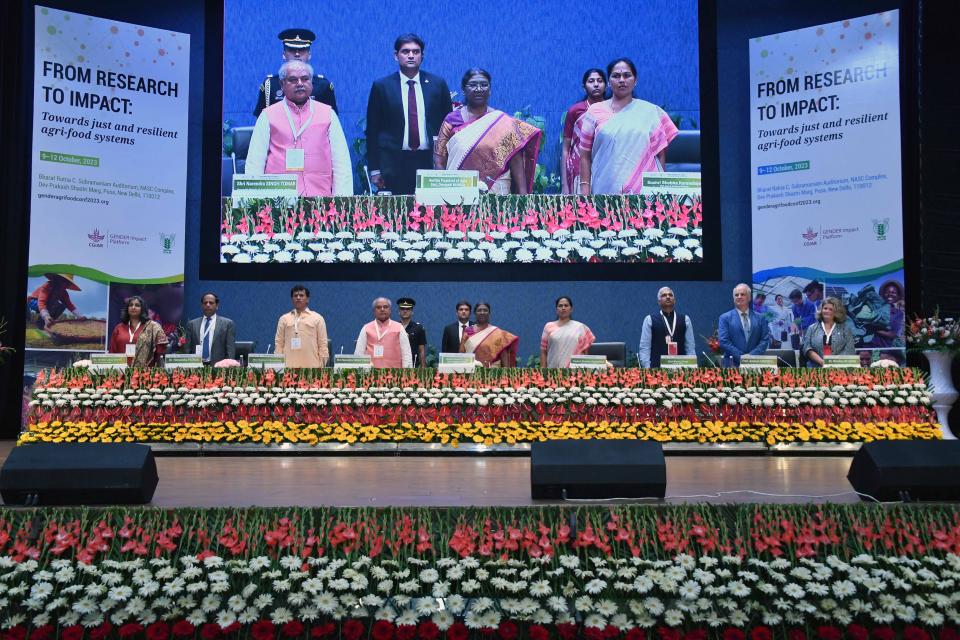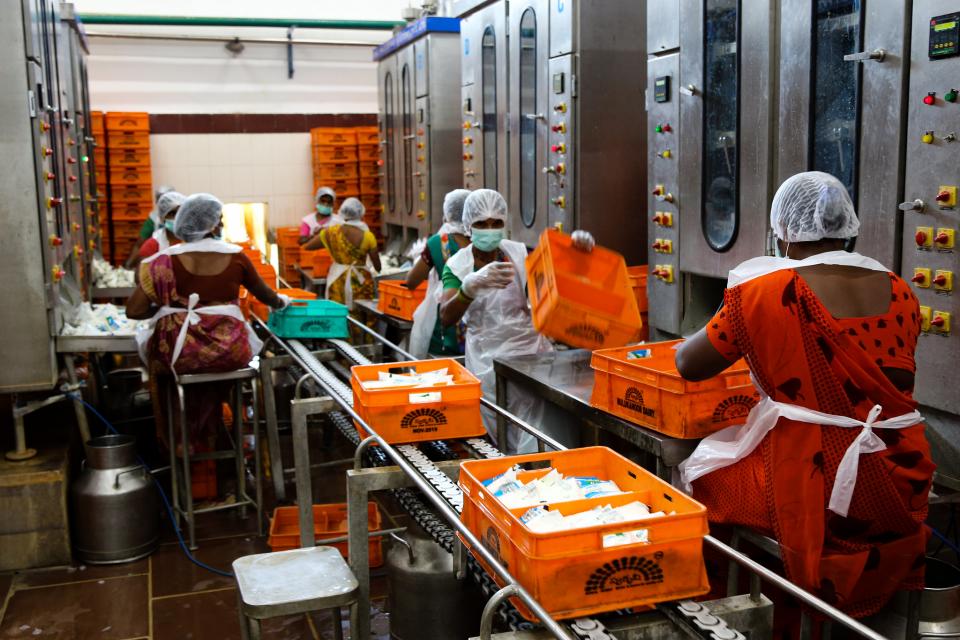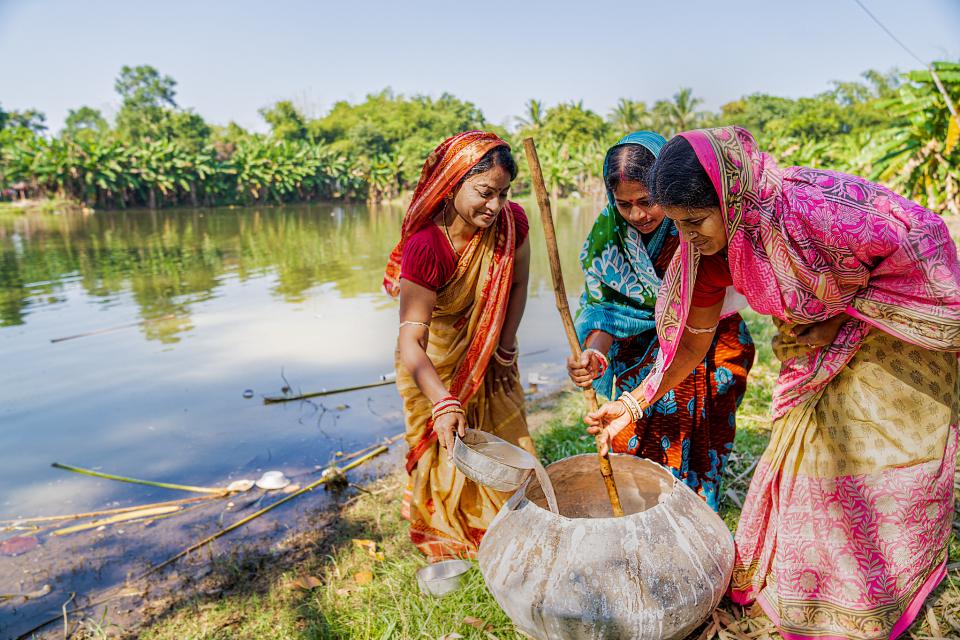Women and youth agri-preneurs need support to foster just and resilient agri-food systems
 Photo: GreyMatters Communications.
Photo: GreyMatters Communications.
Women and youth agri-preneurs still face challenges that prevent them from leading progress towards just and resilient agri-food systems, including lack of access to finance, limited land ownership, informal and unpaid work, and few opportunities to voice their needs.
These were the lessons brought to the forefront by a panel of business leaders, model farmers, and scientists at the ongoing international gender conference, From research to impact: Towards just and resilient agri-food systems, which is hosted by the CGIAR GENDER Impact Platform and the Indian Council of Agricultural Research (ICAR), and which was inaugurated by President of India Smt Droupadi Murmu on Monday.
Speaking in a panel discussion on Tuesday were Anusha Jookuri, Founder and Director of Bee Fresh Products, a honey producer company; Dhruv Tomar, Founder and Managing Director of M Lense Research Private Limited, an outfit that produces single-use milk adulteration testing cards; Jyotsna Kaur Habibullah, CEO of Lucknow Farmers Market, an online platform that links start-ups and consumers; and Dr. Akriti Sharma, CEO of Pusa Krishi, an ag-tech incubator, and Senior Scale Scientist at ICAR. The session, titled ‘Grounding the research: Experiences from the field’, was chaired by Dr. V. Geethalaxmi, Vice Chancellor, Tamil Nadu Agricultural University.
“When you go out in the fields, it is women that you see working on the fields, but those women neither own the land, nor get the proceeds from their hard work. Most of the time their work goes unnoticed and is unpaid,” said Habibullah.
Jookuri, who grew her business from five to 1,500 beehives in four years lamented the lack of access to finance, reporting that banks were reluctant to grant her loans when she first started, and are only willing now that she has already achieved business success.
Tomar expressed that successful entrepreneurship takes persistence and patience, while Sharma added that capacity-building and technology assistance can support farmers to change their mindsets and become agri-preneurs.
The panelists’ experiences were complimented by a keynote presentation by Dr Soma K Parthasarathy, a policy analyst at MAKAAM (Mahila Kisan Adhikari Manch). She expressed how women and landless tenant farmers could redefine and drive resilience in agri-food systems through a ‘basket of activities,’ including farming, gathering, and environmental care work.
Dr Parthasarathy proposed that a move towards circular economies—of solidarity, exchange, and co-ownership—could be achieved by granting women access to spaces in which they can make their voices heard, making women count in data, and through exchanges of seeds. She added that women’s roles and voices in climate discourse as well as in the formulation of policies on land and forest conservation should be enhanced.
The session was closed by Eleanor Dean, General Manager, Outreach & Capacity Building, at the Australian Centre for International Agricultural Research (ACIAR). Dean said that poverty and inequality are underpinned by unequal power relations that are not exclusive to gender, and this is one of the reasons why ACIAR has expanded its work to encompass not only gender equality but also social inclusion, as expressed in its recently published Gender Equity and Social Inclusion (GESI) Strategy and Action Plan.
The second day of the four-day conference saw a total of 18 parallel sessions, including presentations of more than 80 scientific posters on topics such as remedies for reducing the drudgeries of women farmers in post-harvest processing of millet; assessments of gender gaps among women street vendors and hawkers; and gendered drivers of seed choice among farmers in Andhra Pradesh and Telangana.
Reiterating the significance of this conference, Dr Nicoline de Haan, Director of the CGIAR GENDER Impact Platform, said “Globally, gender inequality in agri-food systems remains a very significant challenge – overall, women are often less food secure than men, and they are hit harder by external shocks, such as floods and droughts. We are combining research, evidence and practical understanding to guide policy-makers and investors towards best-bet solutions that can help us get on track to achieve Global Goals on gender equality and women’s empowerment.”
See more details via India's Press Information Bureau.


